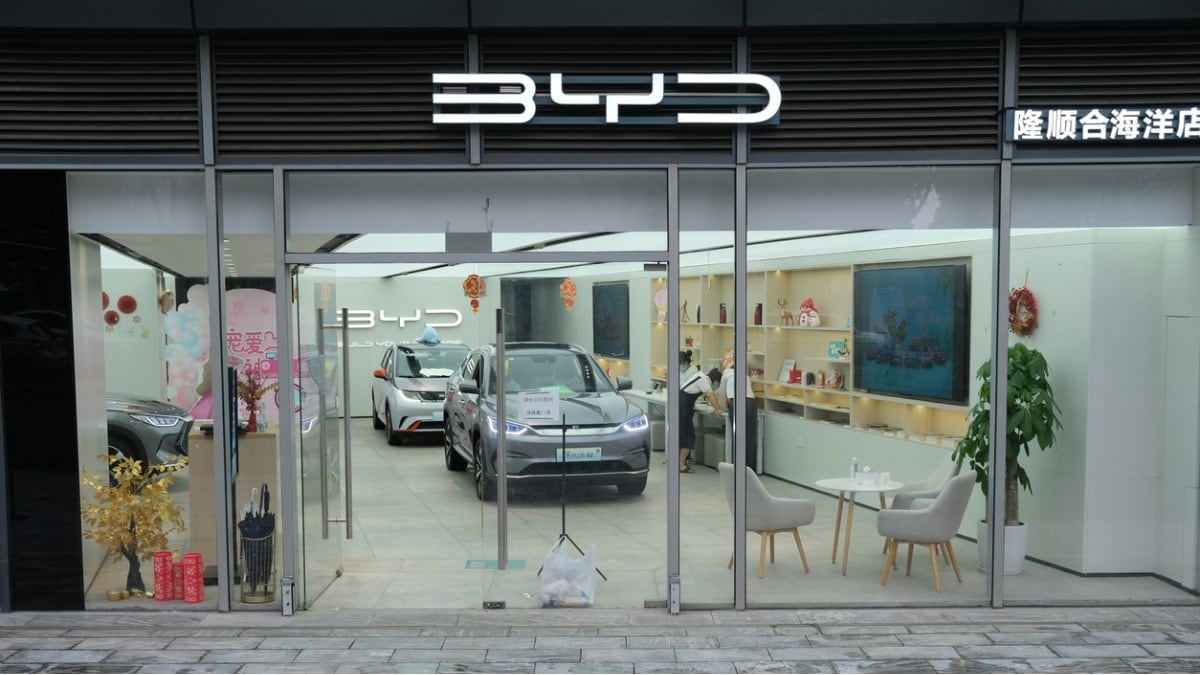Last night, the White House began a process that may restrict Chinese-owned automakers from selling cars in America. The administration called the cars a possible national security threat. It didn’t impose any restrictions, but it launched an investigation likely to be the first step in a legal process of creating barriers.
In a statement, President Biden said, “China is determined to dominate the future of the auto market, including by using unfair practices. China’s policies could flood our market with its vehicles, posing risks to our national security. I’m not going to let that happen on my watch.”
An Emerging Threat to Domestic Automakers
China’s auto industry has quickly become the world’s largest. The Chinese buy more cars than any other population, and by some measures, China overtook Japan to become the world’s largest exporter of cars last year.
Chinese automakers dominate the quickly-growing global trade in electric vehicles (EVs). Lower labor costs, government support, and a ready domestic supply of critical minerals in EV batteries enable Chinese automakers to build EVs at a lower cost than U.S. or European brands.
Last year, China’s BYD overtook Tesla to become the world’s largest source of EVs. The company’s low-cost Seal sedan is a World Car of the Year finalist. No American cars are in the running.
No new cars built and sold by Chinese automakers are available in America today.
Several automakers serving the American market have deep relationships with China. Volvo, for instance, is owned by Chinese automaker Geely. Ford imports its Lincoln Nautilus SUV from Hangzhou. Other vehicles built in China for sale in the U.S. include the Buick Envision, Volvo EX30, and Polestar 2.
But China has dozens of domestic automakers, several selling cars on multiple continents.
Several have built or plan to build factories in Mexico, where Chinese-built cars now outsell American-made models. Some industry analysts say those factories could serve as a staging point for entering the American market.
Last week, a trade group warned that low-cost Chinese EVs in America could be “an extinction-level event” for the U.S. auto industry, which likely could not compete on price.
Administration Launches an Investigation
In a press conference, Commerce Secretary Gina Raimondo and National Economic Advisor Lael Brainard highlighted security risks.
Many cars sold today maintain a constant connection to the internet and gather information on their use.
Raimondo called cars “smartphones on wheels,” noting, “They collect huge amounts of sensitive data on the drivers — personal information, biometric information, where the car goes. It doesn’t take a lot of imagination to figure out how a foreign adversary like China, with access to this sort of information at scale, could pose a serious risk to our national security and the privacy of U.S. citizens.”
Related: Research Group Calls Cars Major Privacy Threat
She also raised the specter of car hacking, saying, “Imagine if there were thousands or hundreds of thousands of Chinese-connected vehicles on American roads that could be immediately and simultaneously disabled by somebody in Beijing.”
Hackers have shut down some cars remotely in experiments, but most current vehicles are not vulnerable to that attack.
Brainard also noted that many of today’s cars connect to smartphones and could collect “a tremendous amount of information” about what drivers and passengers do outside the vehicles.
So, on Wednesday, Raimondo and Brainard announced an advanced notice of proposed rulemaking – the first step in the long process of writing new federal regulations – aimed at restricting car software written in China or other “foreign entities of concern,” including Russia and Iran.
The notice opens 60 days for the public and experts to weigh in on what such a rule should entail. The Commerce Department’s Bureau of Industry and Security will publish a draft rule for similar public comment before finalizing a second draft.
Move Could Have Limits
Focusing on the software that powers cars could leave an opening for Chinese automakers to enter the American market with software written elsewhere.
Many of today’s cars use infotainment systems powered by Google or other third-party companies. Chinese-owned automakers could presumably build vehicles in Mexico using software from non-Chinese companies to sell in the U.S.
Most of the car companies you’re likely familiar with are global entities. They may be headquartered in Michigan, Munich, or Seoul. But, they operate factories on several continents and build with parts and software made outside their home markets.
There’s no reason China’s automakers couldn’t do the same.
Should the Biden administration enact restrictions on Chinese-derived software in cars, the move may not stop cheap Chinese EVs from entering the American market.
Other countries may take more sweeping steps. Last fall, the European Union started a process that may result in tariffs blocking the import of Chinese cars. EU policies let the bloc enact tariffs if it concludes that the Chinese government is subsidizing its car industry.
Politico reports that yesterday, the U.K. began a similar process amid concerns that China will divert EU-bound vehicles to the U.K. if the tariffs start.








